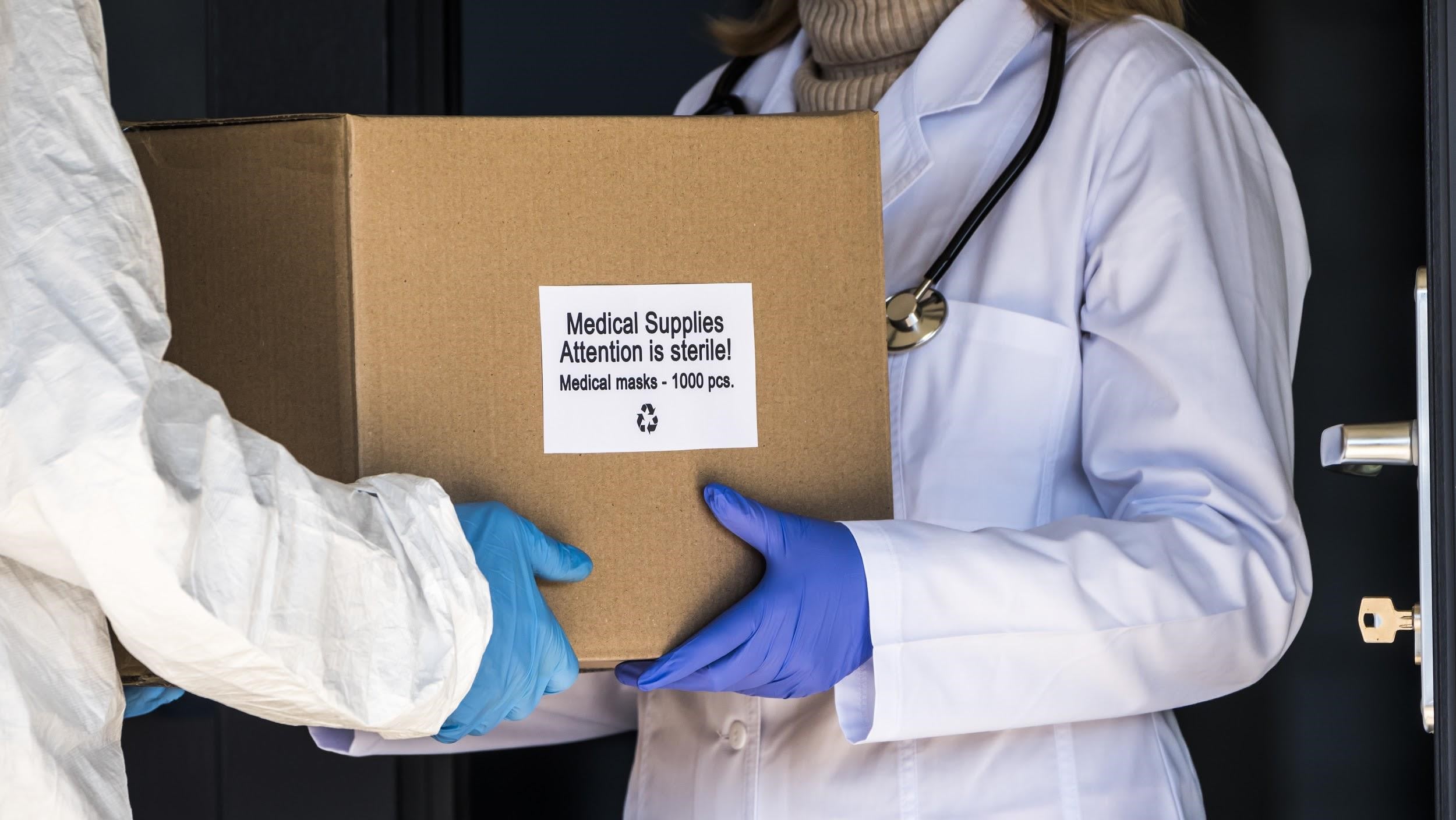
Supply Chain Resilience in the Time of COVID-19
COVID-19 took the world by surprise - impacting everything in its path. Overnight, global supply chains were exposed to vulnerabilities most could not predict - from halts in production across China to shortages in raw material and finished goods. As supply chains have evolved, traditional linear supply chain models aren’t suited to withstand major impacts, like a global pandemic. This crisis is forcing companies to rethink and transform their global supply chain model. Companies that adapt quickly to changing demands, become more connected to their network, and have end-to-end visibility across their supply chain will lead the way. Avnet, a global electronic components distributor with $19.5 billion in annual revenue, is doing just that by keeping the supply of much-needed components for essential medical devices, like ventilators, up and running.
Supply Chain has changed in major ways
Today, more than ever, supply chains are fragmented. With rapid globalization, the flows of materials in a supply chain are increasingly complex as the global customer and supplier base grows. Supply chain isn’t only a network between a company and its suppliers to produce goods, but spans from buying, making and moving, to storing and selling. At the same time, raw materials and products travel across numerous geographical locations and pass through multiple links in the chain. This coincides with a growing demand for e-commerce and high customer expectations. Online products are delivered quicker than ever, all while putting customers first - modeled by Amazon. Meanwhile, balancing cash, cost, and service levels while staying competitive is essential. As supply chains become more complex, companies discover that existing processes and technology are not flexible enough for this new business environment. The right supply chain design is critical to managing today’s challenges.
Technology spurs the need for constant innovation and transformation
In the early 2000’s, ERP implementations soared, which allowed companies to capture and accumulate data around their supply chain. But more data means more complexity. The question is how do we use this data? Rapid change in technology has great potential to improve the supply chain. This includes better asset utilization and higher uptime to improve customer service, reliability, and visibility of end-to-end supply chain performance according to Gartner. Enormous growth in analytics puts information into the hands of the supply chain users. This is where challenges become opportunities.
Coronavirus - the biggest global supply chain disruptor
Never before have companies experienced such a sudden and extreme surge in demand and strain on supply as they are during the current COVID-19 crisis. Lean supply chains with low inventory are facing serious shortages as consumer demands for essentials like paper products, disinfectants, and, most importantly, medical devices and healthcare supplies rise. Companies are racing to keep up with these demands. But many have neglected to evolve their supply chain operating model over the years and don’t have a fulsome view of their processes. So, they’re unable to sustain changes when they need to pivot, according to McKinsey.
A resilient supply chain in times of COVID-19 is nimble and acts fast
Some companies are leading the way in times of COVID-19 and are reacting quickly to these changes. Businesses that have already taken measures to design a more resilient, agile supply chain are best positioned to make real impact in times of a crisis. “The world of digitalization, the new IoT world, and the different demands from our customers and suppliers have forced us to transform and to change ourselves,” says Stefan Maurer, VP Enterprise Effectiveness, Avnet EMEA. Avnet is a global distributor of electronic components with $19.5 billion in annual revenue who supports industries ranging from aerospace and energy to healthcare and serves over 2.1M customers with 1,400 suppliers. A company at this scale has a massive and complex global supply chain to operate.
Avnet accelerates action through process excellence
Avnet knew that insights into their supplier’s delivery of inventory was key to meeting their customers’ demands. Yet when Avnet leveraged Process Mining in their Purchase-to-Pay process, they discovered that nearly 10% of inbound orders from their 500 vendors were actually arriving earlier than requested. Having additional inventory on hand meant paying for it earlier than planned, which directly impacted their ability to optimize working capital. Avnet could immediately see which suppliers were routinely delivering goods too early, allowing them to set up corrective measures and negotiate with these suppliers - ultimately saving them €6.55M in working capital. With these insights, Avnet leveraged the Action Engine to automatically inform the Accounts Payable department and adjust the payment terms in the system to match the originally communicated terms. Overnight, COVID-19 impacted several of Avnet’s suppliers on how and when their deliveries would arrive. This, in turn, affected Avnet’s deliveries and commitments to their own customers, many of which play pivotal roles in the healthcare system. Avnet quickly implemented a Celonis dashboard to maintain visibility into the most critical parts of their supply chain. Now, Avnet uses Celonis as an early warning system and leverages the power of the Action Engine to automatically trigger actions when possible supply chain impacts are identified. With real-time data, they can make same-day adjustments and prioritize inventory deliveries for medical and healthcare customers (such as components for ventilators and respirators) over non-essential consumer goods. By leveraging their product development ecosystem and global reach, Avnet continues to provide lifesaving solutions to those in need.
The future model of supply chains
In a time of constant change and unpredictability, companies with resilient supply chains will prevail and have the ability to make the greatest impact. With an ability to respond to unexpected risk events and recover quickly to disruptions, these supply chains can boost customer service, market share, and performance and become the future model of supply chains. Learn more about how Celonis is addressing customer care in the time of COVID and gain full transparency on what is happening and which actions to take in your supply chain. Hear Avnet’s full story from Celosphere Live.





